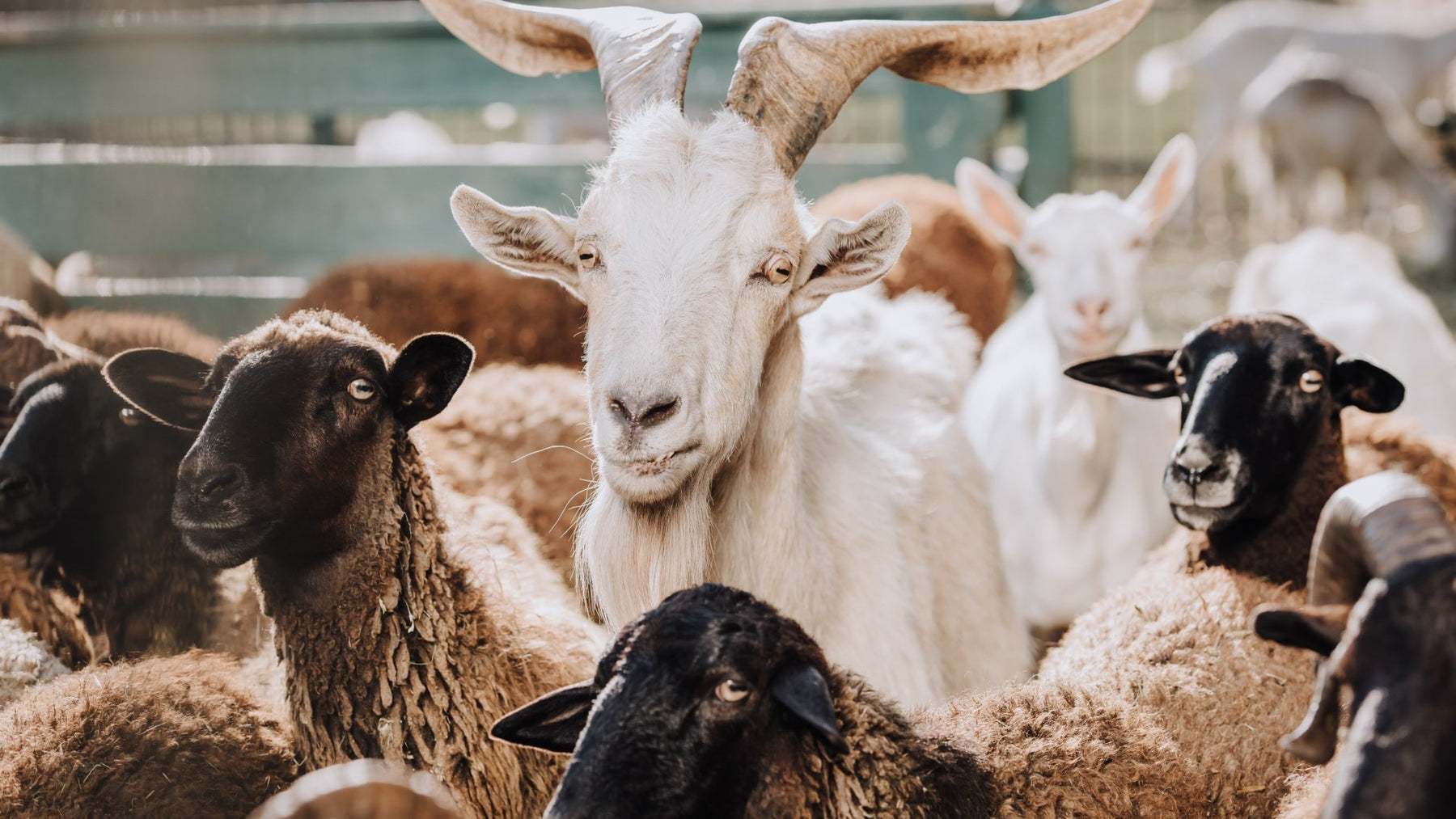
Best Livestock Scales for Goats, Sheep & Pigs
For small farms, homesteads, and even hobbyists, accurately weighing livestock like goats, sheep, and pigs is crucial for effective animal management. From monitoring growth rates and optimizing feed consumption to ensuring proper medication dosages and maximizing market value, reliable small livestock scales are an indispensable tool.
This article explores the best solutions available, offering insights into their features, benefits, and how to choose the right one for your needs.
The Importance of Accurate Livestock Weighing
In the world of small-scale livestock farming, precision is paramount. Without accurate weight measurements, it's challenging to make informed decisions about your animals' health, nutrition, and market readiness. Under- or overfeeding can lead to poor health or wasted resources, while inaccurate weights before sale can directly impact your profitability.
Small livestock scales fill this vital need, providing the data necessary for efficient and humane animal husbandry. They allow farmers to track individual animal progress, identify potential health issues early, and ensure optimal returns on their investment.
Key Considerations for Small Livestock Scales
Choosing the right scale involves understanding the various types and features that cater specifically to the needs of goats, sheep, and pigs.
Types of Small Livestock Scales
The market offers a range of small livestock scales, each with its own advantages:
-
Portable Platform Scales: Platform scales are often a top choice for small farms. Their design usually includes a low-profile base with non-slip surfaces, which helps animals get on and off easily. Many come with wheels and handles for effortless relocation between pens or pastures. Their versatility makes them ideal for weighing individual animals or small groups.
-
Load Bar Systems: Load bars are versatile components that can be placed under an existing chute, pen, or custom-built platform to create a weighing station. This offers flexibility in terms of size and configuration, making them suitable for various existing setups.
-
Veterinary or "Vet" Scales: While often designed for smaller companion animals, some larger vet scales can accommodate young goats, sheep, or piglets. These often prioritize extreme accuracy and may have features like "hold" functions to capture weight even with a moving animal.
-
Cage Scales: These scales integrate a full enclosure or cage onto the weighing platform, which can be particularly useful for keeping more restless animals contained during the weighing process, reducing stress for both the animal and the handler.
Essential Features for Goats, Sheep, and Pigs
When selecting a small livestock scale, consider these key features:
-
Accuracy and Precision: Look for scales with high accuracy (e.g., +/- 0.5 lb or 0.2 kg) and a fine resolution to ensure reliable readings, especially for growing animals where small weight changes are significant. "Motion compensation" technology is vital for getting stable readings from moving animals.
-
Capacity and Platform Size: It's important to verify that the scale can easily support the highest expected weight of your adult livestock. The platform dimensions should be large enough to accommodate the animal comfortably and safely without feeling confined.
-
Durability and Material: Farm environments can be tough on livestock scales. Opt for models made from robust, weather-resistant materials like galvanized steel or high-grade aluminum. To ensure animals are safe, the platform must be non-slip.
-
Portability: If you need to weigh animals in different locations, a lightweight scale with integrated wheels and handles is a significant advantage.
-
Digital Display: A clear, backlit digital display is crucial for easy readability, even in low light conditions. Features like "hold" function, tare (to zero out a container), and unit conversion (lbs/kg) enhance usability.
-
Connectivity and Data Management: Modern scales often offer USB or Bluetooth connectivity, allowing you to transfer weight data to a computer or farm management software. This streamlines record-keeping and analysis of growth trends.
-
Ease of Cleaning and Maintenance: Animals can be messy. Choose a scale with surfaces that are easy to clean and components that are protected from moisture and debris.
Benefits of Using Small Livestock Scales
Investing in a quality small livestock scale offers numerous advantages:
-
Optimized Nutrition: Precise weight data allows for accurate feed adjustments, preventing under or overfeeding and optimizing feed conversion ratios.
-
Improved Health Monitoring: Regular weighing helps identify weight loss (a sign of illness) or insufficient growth early, enabling timely intervention and veterinary care.
-
Enhanced Breeding Programs: Tracking breeding stock weights assists in assessing reproductive health and monitoring gestation.
-
Maximized Market Value: Knowing the exact weight of market animals ensures you sell them at their optimal weight, maximizing your financial returns.
-
Accurate Medication Dosing: Many medications are dosed by weight, so accurate scales are critical for animal safety and treatment effectiveness.
-
Reduced Stress: Efficient and user-friendly scales can minimize the time an animal spends being weighed, thereby reducing stress for both the animal and the handler.
Conclusion
For anyone raising goats, sheep, or pigs, a small livestock scale is more than just a piece of equipment; it's an investment in the health, productivity, and profitability of your operation. By carefully considering the type of scale, its features, and the specific needs of your animals, you can select the best solution to ensure accurate weight management, leading to healthier animals and a more successful farming enterprise.
Get accurate weighing for your farm. Liberty Scale has the perfect livestock scales for goats, sheep, and pigs. Contact us now!
FAQs
How often should I weigh my small livestock?
The frequency depends on your goals. For growing animals, weekly or bi-weekly weighing is common to track growth rates. For adult animals, monthly or quarterly checks are usually sufficient for health monitoring and feed adjustments.
Can I use a regular bathroom scale for my small animals?
No, bathroom scales are not designed for the movement or weight distribution of live animals and will provide inaccurate readings. Livestock scales have specialized load cells and motion compensation features to handle animal movement.
What's the difference between a portable and a stationary livestock scale?
Portable scales are designed for easy movement between locations, often with wheels and handles. Stationary scales are fixed in one place, typically in a chute or permanent pen, and are built for heavy, consistent use.
How do I calibrate a small livestock scale?
Most digital scales come with a calibration feature. You'll typically need certified test weights that match a percentage of the scale's capacity. Follow the manufacturer's instructions, which usually involve placing the weights on the platform and adjusting the scale to read correctly. Regular calibration (e.g., every 6-12 months) is crucial for maintaining accuracy.
What safety features should I look for a small livestock scale?
Key safety features include a non-slip platform, sturdy construction that prevents tipping, and gates or enclosures (for cage scales) that securely contain the animal without causing injury. Low-profile designs with gentle ramps also make it safer for animals to enter and exit.
